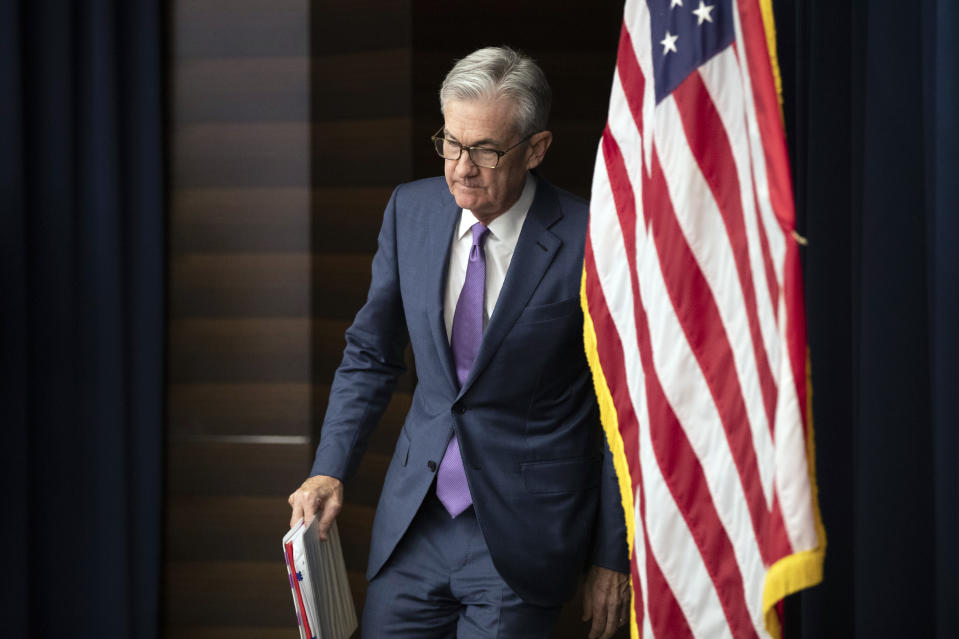Trump’s wacky plan for the federal debt
President Trump wants to refinance the nation’s $17 trillion in federal debt, as if Uncle Sam’s liabilities are a mortgage or simple business loan.
“The Federal Reserve should get our interest rates down to ZERO, or less,” Trump tweeted on Sept. 11. “We should then start to refinance our debt. INTEREST COST COULD BE BROUGHT WAY DOWN.”
Actually, it can’t. Uncle Sam can’t refinance its debt the way a homeowner—or real estate developer—might be able to. “The bottom line is, it won’t work,” says David Wilcox, a senior fellow at the Petersen Institute for International Economics and former head of research at the Federal Reserve. “How it works in the mortgage world and much of the corporate debt world is not how it works in the Treasury debt world.”
When interest rates fall, mortgage holders can normally refinance by taking out a new loan at a lower rate than the old loan, and using the proceeds to pay off the balance on the old loan. The borrower still owes the same amount, but with lower interest rates, monthly payments normally go down.
Mortgages are “callable” debt that allows the borrower to pay off the balance before the loan comes to term, which for mortgages is commonly 30 years. That gives the borrower the flexibility to capitalize if interest rates fall. But that’s a risk for the lender, which means mortgage rates are higher than they’d be if they weren’t callable, and the borrower was locked into paying the fixed rate for 30 years.
Debt issued by the Treasury is not callable, which means the government does not have the right to repurchase its own securities at face value any time it wants. Treasuries are commonly traded on the secondary market, and the Treasury could buy its own securities at market prices. But this wouldn’t save taxpayers any money, either.
No benefit for the taxpayer
If the government wanted to buy up Treasury securities paying higher rates, and pay for them by issuing new debt with lower rates, it would have to pay a premium for those securities on the secondary market. That’s because the seller would be giving up a bond paying, say, 5% for 10 years, and only be able to use the proceeds for a bond paying, say 2%. Efficient markets would set the premium for the higher-interest bond equal to the interest savings from the lower-interest bond. So the Treasury would save on interest costs but pay the same amount in premiums to purchase the higher-interest debt. “It won’t generate any benefit for the taxpayer,” Wilcox says.

The government has issued callable debt before, and it could do that again. But any borrower generally has to pay a higher interest rate for the right to repurchase the debt at any time. So if the Treasury did that, the government’s borrowing costs would rise. And it wouldn’t do anything to refinance debt it has already issued.
Trump seems increasingly desperate to find some way to stimulate a slowing economy, with the 2020 presidential election now 14 months away. But he has already made decisions that are driving the national debt up rather than down. The tax cut he signed in 2017 is pushing annual deficits close to $1 trillion, in part because of a big dropoff in corporate tax revenue. Trump said the tax cuts would increase investment, economic activity and government revenues, but that hasn’t happened.
Trump has also amped up—if that’s possible—his attacks on the Federal Reserve, by demanding a sharp cut in interest rates all the way to 0, and calling Fed policymakers “boneheads.” They’re not boneheads, and it doesn’t make sense to implement an aggressive, recession-style policy for an economy that’s still doing okay. There are definitely boneheads elsewhere in Washington, though.
Rick Newman is the author of four books, including “Rebounders: How Winners Pivot from Setback to Success.” Follow him on Twitter: @rickjnewman
Confidential tip line: [email protected]. Encrypted communication available. Click here to get Rick’s stories by email.
Read more:
Trump’s trade war has killed 300,000 jobs
How to tell if a Trump recession is coming
Democrats are attacking the wrong companies
Trump’s biggest gamble yet: tax hikes before an election
Obama was better for your 401(k) than Trump has been
Read the latest financial and business news from Yahoo Finance
Follow Yahoo Finance on Twitter, Facebook, Instagram, Flipboard, SmartNews, LinkedIn, YouTube, and reddit.
